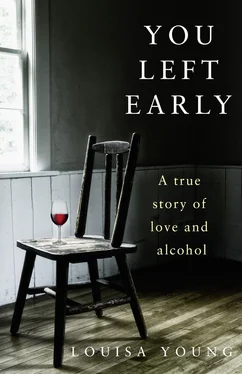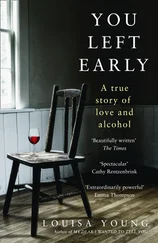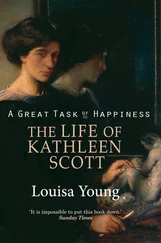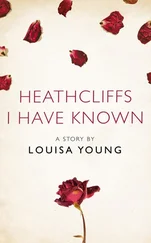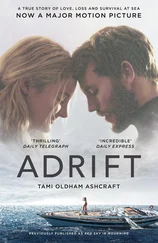His was not a childhood of clogs and tinned food – they had a piano, records, laminated recipe cards – but he was familiar with factory sirens and rough lads and the River Douglas – the Dougie – running a different colour on different days of the week because of the dyes. He loved Les Dawson and explained to me the source of his silent exaggerated mouthing: the ‘mee-maw’ that women working the mills would use to make themselves understood over the sound of the machinery. And he reserved a lifelong interest in people who, like him, made the risky, lonely leap of class: David Hockney, Alan Bennett, Jeanette Winterson, Keith Waterhouse, Victoria Wood, Dennis Potter. Especially if they were drinkers: Dudley Moore, Richard Burton, George Best, Gazza.
At Oxford, with people he didn’t know well, who all seemed to sound like the BBC and wear Eton ties, he felt he had to assert himself to be noticed. He didn’t like to be ignored. He wanted to experience everything at once, to lead a life as intense as it could be, to go to bed with as many women as possible, see everything, do everything. ‘It’s what you do in these sorts of moods that gets you a bad reputation,’ he said to a friend who wrote a profile of him for a student magazine. ‘And when I’m in one of them I really revel in my reputation.’ But he also wanted an introverted life, writing music, reading, with a real relationship, warm and secure and emotional. Then, he said, he despised his other self for sleeping anywhere, and putting up a huge facade. He was really a romantic. ‘Just one note,’ he said, ‘a particular chord, can give me an incredible sense of, well, it can’t be nostalgia, because it’s not for anything in the past. I suppose it’s more like nostalgia for another world …’
Robert was very popular. His legends abounded: the time his tutor popped in to see him, and a naked girl was playing his piano. The occasion when a scorned admirer – male – dropped an empty champagne bottle from a high window, just missing Robert’s head – Robert was convinced it was a murder attempt. The pissing in the sink so often it had to be removed, whereupon he just pissed out of the window. The Dean of Music calling in to wake him every day around noon. The dancing naked on the lawns; the streak across the river during an Eights Week boat race, pursued by loud-hailing patrol boats. And, as a female friend said years later: ‘He slept with everyone except me and Benazir Bhutto.’
People mooned over him. I’m not bloody mooning over you , I thought. So proud! I longed to moon over him. I was SO romantic, and the only thing I was more so than romantic was proud. And of course I found him SO romantic, and so of course, because I was seventeen, He Must Never Know. Also, I was narked about him being two years ahead of me academically, though a day younger, and fully state-educated where I was only half, which to my mind gave him a cracking moral advantage. I went from a posh Lefty West London home – ‘don’t say pardon, say what’ – to a state primary – ‘don’t say what, say pardon’ – and then to the kind of highly academic girls’ private school which told us that we were better than everybody else. Some of my coevals took this as read, and are currently running the world; those who knew it not to be true tended to slump to the polar opposite and believe themselves to be worse than everybody else, and certainly Not Good Enough, hence the prevalence of drugs and eating disorders among pupils at those places; or, in my case, a mildly dysmorphic conviction of my own fatness, and cider. I grew up drenched in all that should have made me feel at home when I went to university at Cambridge, from accents to architecture, yet found myself bemused, class- and location-wise. Three thick card invitations in the same envelope, to a ‘dinner party’, a ‘dance’ and a ‘house party’, all from names I didn’t recognise, on the same night, at different addresses, in Hampshire where I had never been – what was this? I quietly asked a country-gentry type I knew. He sneered at me, for ‘faux naivety’ and ‘inverted snobbery’, for, as he saw it, pretending not to know. But I didn’t know. In London, at nineteen, dinner was a doner kebab on the night bus; if you stayed over after a party it was because you fell asleep on someone’s sofa. Being sneered at by someone who considered himself my social superior was … educative.
*
At Emma’s, I remember a long sofa against the wall; sitting on it with him being, as we later called it, Lockharted – being tested and chauved (a Wigan verb, meaning to wind someone up), regaled and assaulted with a barrage of combative and contrary wit, filthy flirtation and intense, wilfully polysyllabic musical erudition which made strong men weak and weak girls melt – and some people, of course, sidle off in bemusement and/or disgust. Gesualdo’s duel, Schubert’s syphilis, my bra strap, Bill Evans, more wine, Red Garland, Singapore laksa, Argerich’s rubato … He was a centre towards which things spun. So when you’re on the sofa with him, the focus of him, getting all of it, the intensity, immediacy, challenging, drinking, smoking, the you – here – now. I want yer – there was a tendency to go ‘Whoa!’ and fall into the tidal wave.
Seeing myself as fat and not what boys wanted, I drank too much and had had my heart severely broken at university. I wasn’t stupid, but I was dismally blind when it came to reading men’s intentions towards me: I got into situations. It was still, just, the era of ‘men’ and ‘girls’. I did agency work (security guard, catering, tea-lady in a parking meter factory) and lived in a squat and wanted to be a writer but I had nothing to say on paper and I knew it. I was frustrated and not good at going after what I wanted. I knew exactly how lucky I was, and I suffered the paralysis which can affect intelligent posh girls, saying to them ‘You have been given so much; you with your education and your stable family and your prosperity and your accent, seriously, you’re asking for more?’ I thought to be loved you just lived your life until someone turned up and loved you. I did actually think, like Shakespeare’s Helena, that we cannot fight for love, as men may do; we should be woo’d, and were not made to woo . It didn’t occur to me to go out and get them. Quite often I stayed in bed reading because it was easier. Looking back at me, I might say I was depressed. Emotions were extreme.
That night, he made me laugh so much. The cutting through the crap – he wouldn’t just cut to the chase, he would cut to three chases at once, going too far too fast in all directions and assuming that everyone else wanted to go there too. Which I did. He seemed to carry a kind of truth within him, an honesty beyond that of less intense people. This he never lost. Anyway, we went on to the balcony, and later we went back in a cab to the cheerful little house I lived in. A cab! I was the posh one, but I couldn’t afford cabs. We stopped on the way at a kebab shop on Queenstown Road, and Robert kept the taxi waiting. There was a group of skinheads at the back: Ben Shermans, Doc Martens, overhead strip lighting. They made Robert nervous, but it was me they laughed at, with my very long hair – ‘Oi, skin’ead!’ they yelled at me.
I remember that the wall between my bedroom and the back room was half dismantled; I’d taken down the plasterboard and the strips of lath, leaving only the wooden struts, which I used as a kind of tiny unsatisfactory shelving system. I had a single bed. I remember he was very thin, and the sex was revelatory.
He left the next afternoon, and vanished off the face of my earth. I remember I was hurt and mortified. For months. I did not understand – and still don’t – how a brilliant night with someone could possibly not lead to wanting another brilliant night with them, and another, and another. Seriously, why? I didn’t understand how you could do all that together, and then – nothing. It made me a fool and him a bastard. I hated being a fool and I hated him being a bastard.
Читать дальше
